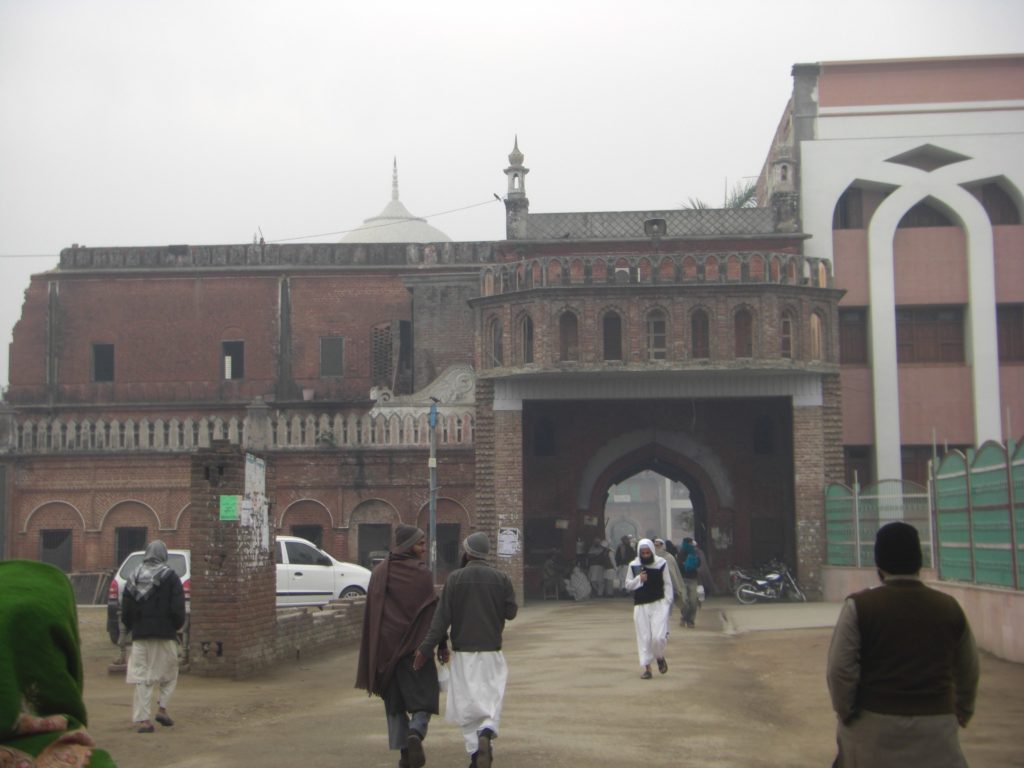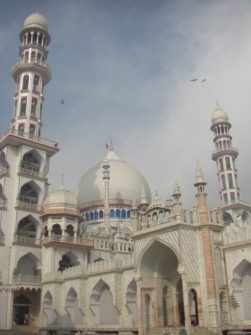
This book lands like an obelisk at the intersection of several fields. It joins the philological rigor of classical Islamic studies with the theoretical framing of religious studies and the contextual nous of South Asian studies. It will likely be a new point of departure for conversations around Islam in early modern and modern South Asia. And it plants a sturdy post in the region, extending the discursive tent of the Arabo-Ottoman-centric study of Islamic thought to include influential participants long ruefully omitted.
One could reflect on this book in many ways. I would be content merely to list its virtues and accomplishments were more engagement not asked of me. And yet at this I hesitate, well aware of the daunting expertise needed to comment on the universe of the Deobandīu/Barelvī dispute, an imposing knot that draws together equally the long diachronic cords of Islam’s theological dispute over divine sovereignty and the rich threads of cultural and political contestation in British India.
Perhaps one insight I could offer would be a memory of my own befuddlement, born of an Arabo-Ottoman bias. I remember reading the Taqwiyat al-īmān of the Indian-born Shāh Ismāʿīl al-Shahīd (d. 1831), a text that anchors Tareen’s book, almost fifteen years ago. I was very interested in the topic of the 18th-century movements of revival and reform in the Islamic world, often conceived of as Proto-Salafi, and the text clearly fit right in. Shāh Ismāʿīl’s disapproval of conspicuous markers of social hierarchy and his fierce rejection of saintly intercession could have come from the pen of the Najdi Ibn ʿAbd al-Wahhāb (d. 1792) in Saudi Arabia or the books of Ibn al-Amīr al-Ṣanʿānī (d. 1768) in Yemen. And yet the relatively short text quickly escaped my comprehension. Shāh Ismāʿīl began speaking of intercession of different sorts, deploying the analogy of petitioning a vizier, of a sultan’s love and permission. It made little sense to me. It seemed very foreign.
Intra-Sunni arguments over seemingly obscure points of theology, whether the nature of God’s speech in the ninth century or whether the Prophet is present during prayer in the twentieth, reach such volume and ferocity that historians often assume that they must have been debates over politics or society by other means. A point clearly and convincingly made in Defending Muḥammad is that assuming that theological dispute and—for the lack of a better word—politics are isomorphic does disservice to the weight and intermingling of both. Muslims had been debating whether and how a human being can intercede with God on behalf of another for over a millennium. And Muslim scholars had been wringing their hands at what various types of rulers and states meant for the public manifestation of Islam—and competing for influence among both the masses below them and the ruling elite above—for equally long. What Tareen demonstrates is that understanding Shāh Ismāʿīl’s text, as well as the many rebuttals it prompted, means reading it through the court idiom of the Mughal twilight. But, crucially, this political idiom was synchronous to this theological discourse, not causal (124 ff., 146, 148, 155).
Succumbing to the Atlantic-world habit of assuming a bifurcation of politics and religion is one danger aptly pointed out by Tareen. His book makes it equally clear that one cannot read the landscape of Islamic thought and practice in British India through a lens ground to catch binaries like tradition/reform, law/mysticism, Arab/indigenous, extremist/tolerant, Salafi/Madhhabi-Sufi. Many of these binaries seem better suited to the study of Islam in the modern Ottoman Middle East, though Indira Falk Gesink (2009) and Leor Halevi (2019) among others have revealed the error of over-reliance on such framing.
Perhaps the appeal of the Salafi/Madhhabi-Sufi binary is so appealing in the Ottoman-Middle-East context because ʿulamā’ participants in prominent debates raging there since the early twentieth century have so explicitly acknowledged this divide, if not always by those terms. As Tareen explains, the thunderous Deobandī/Barelvī battle has occurred within one side of that binary: neither Deobandīs nor Barelvīs are “Salafis” by any stretch (despite Barelvī invectives against their allegedly ‘Wahhābī’ foes). Both camps are admitted and recognized devotees to the Ḥanafī school of law and the non-controversial strain of India’s Sufi heritage.

Hence it could be the Ottoman Middle East’s most vehement enemy of Salafism—and a scholar who breathed to defend Abū Ḥanīfa against any and all foes—Muḥammad Zāhid al-Kawtharī (d. 1952), who first widely promoted the Hadith scholarship and theological polemics of Deoband grandees like Khalīl Aḥmad Sahāranpūrī (d. 1927), Anwar Shāh Kashmīrī (d. 1933), and Ashraf ʿAlī Thānvī (d. 1943) in the Arabic-speaking world.[1] This praise was echoed by another bane of Salafism in the Arabophone world, the Moroccan traditionalist polymath ʿAbdallāh bin al-Ṣiddīq al-Ghumārī (d. 1993).[2] Die-hard opponents of Salafis, al-Kawtharī and al-Ghumārī were delighted by the tremendous accomplishments in Hadith scholarship by these Deobandī giants. And they appreciated their rebuttals of the Aḥmadī movement. In one book, al-Ghumārī notes approvingly of three of Aḥmad Riḍā Khān’s (d. 1921) books on the Prophet’s knowledge of the unseen.[3] But Khān’s writings seem to have had little impact on scholarship in the Arab world, certainly not in comparison to Deobandīs like Anwar Shāh Kashmīrī. Ironically, if asked about the Prophet’s knowledge of the unseen or the mawlid, scholars like al-Kawtharī and al-Ghumārī would no doubt take the Barelvī side. But they could read and appreciate the books of Deobandi scholars in blissful removal from the controversies in South Asia. Even today, ulama in the Arab world remain mostly unaware of—or uninterested in—the Deobandī/Barelvī debate.
Why has a debate that seems so voraciously consuming in South Asia not spread elsewhere, touching as it does on the enduring controversies of divine sovereignty and the Prophet’s relationship to it (large South Asian diaspora communities excepted)? Ironically, the answer might comfort Shāh Ismāʿīl al-Shahīd, the founders of Deoband, and Aḥmad Riḍā Khān alike. Tareen assiduously lays out how all these great scholars sought to preserve what they saw as the religious, communal, and sometimes even political hallmarks (shaʿā’ir) of Islam and Muslim practice. They wanted the Muslim community to survive, vigorous and uncorrupted, though they disagreed on how that vigor should be protected and what the most dangerous forms of corruption were. It may be that the Deobandī/Barelvī debate, which, Tareen reminds us, takes place between two parties who agree on far more than they disagree and compete for adherents in the same population, has remained at such a stunning volume for so long because the universe of South Asian Islam has been nurtured so richly. That one can enter this dispute on the streets of Durban or Leicester, that Cape Town has Barelvī mosques and Deobandī Dār al-ʿUlūms, testifies to the powerful infrastructure of clerisy and learning, and even more to the passions stoked by all these reformers. This is a rowdy but unbroken spirit.
[1] See Muḥammad Zāhid al-Kawtharī, Maqālāt al-Kawtharī, 68, 271.
[2] ʿAbdallāh b. al-Ṣiddīq al-Ghumārī, Sabīl al-tawfīq fī tarjamat ʿAbdallāh b. al-Ṣiddīq (Cairo: al-Dār al-Bayḍā’, 1990), 59.
[3] Al-Ghumārī, Afḍal maqūl fī manāqib afḍal rasūl (Cairo: Maktabat al-Qāhira, 1425/2005), 70 ff.

